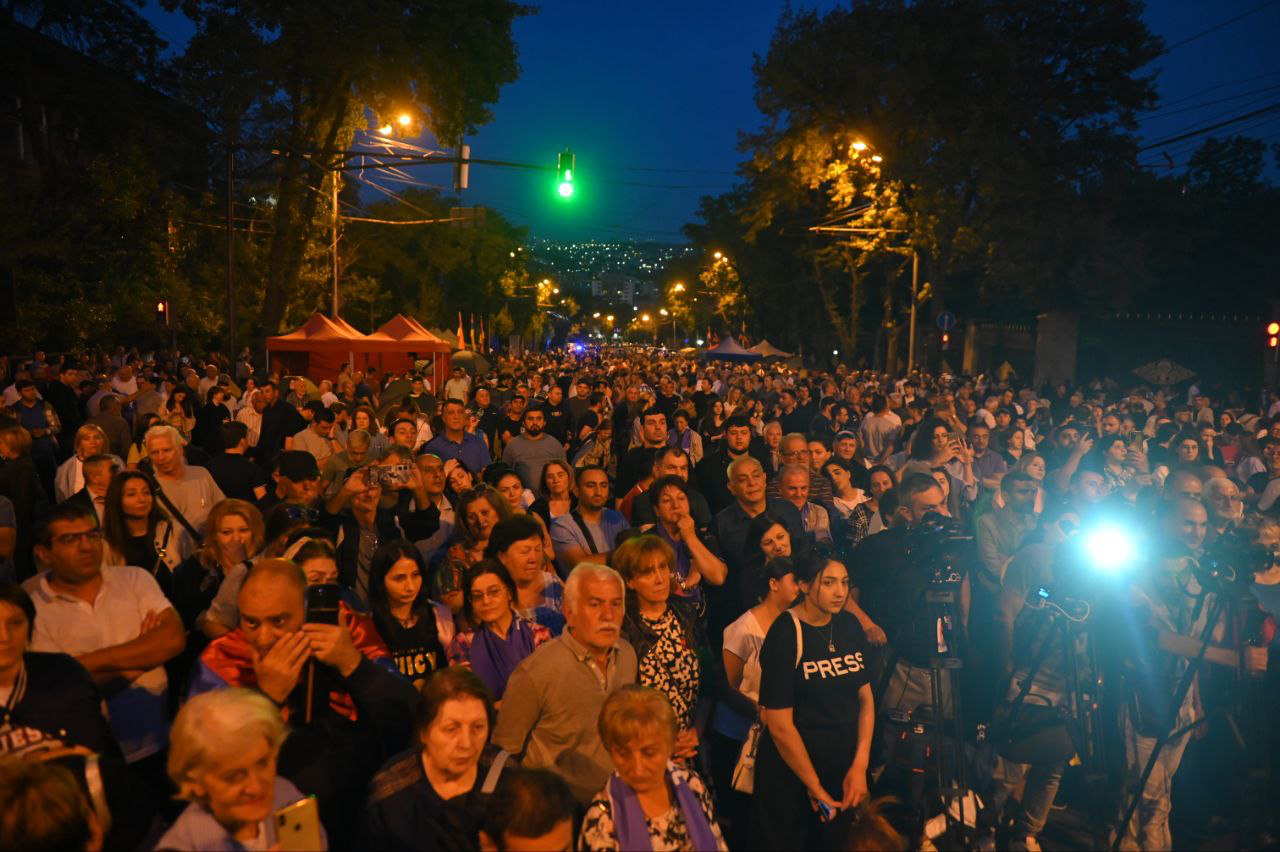The Armenian people are waging a tough struggle against the regime that has usurped power and turned the country into a police state. Here is a summary of the key events from June 9 to 11.
Massive Rally in Yerevan: A Call for Strategic Change
The Armenian people are embroiled in a fierce struggle against a regime that has not only usurped power but has also turned the nation into a police state. This ongoing conflict reached a boiling point from June 9 to 11, marked by significant events that underscore the public’s demand for governmental change.
On June 9, Republic Square in Yerevan witnessed a massive rally, a testament to the mounting public frustration. Archbishop Bagrat, the leader of the “Tavush for the Homeland” movement, addressed the crowd, laying out the movement’s strategic vision. The primary goal, he asserted, is the resignation of the current government through constitutional means, followed by the establishment of a non-partisan, transitional government comprised of professionals. This interim administration, crucially, will not partake in any upcoming extraordinary or regular parliamentary elections. Its mandate is clear: to foster internal reconciliation, mend broken foreign relations, and guarantee free, fair, and transparent elections.
Archbishop Bagrat’s Proposals and Public Enthusiasm
Archbishop Bagrat emphasized that the National Assembly must declare the government’s resignation, pointing to the administration’s comprehensive failure to deliver on its 2021-2026 program. He announced that the National Assembly Council would meet on June 10 to discuss this critical demand, setting the stage for an extraordinary session of the National Assembly on the evening of June 11. The Archbishop’s proposals were met with widespread enthusiasm, reflecting the people’s deep-seated desire for change.
Public and Political Pressure on the National Assembly
The realization of this demand, Bagrat noted, hinges on public and political pressure on the parliament. Following his speech, he led the rally participants toward the National Assembly building. Upon arrival, the protesters encountered thousands of police troops blocking Demirchyan Street, which houses the entrances used by parliament members. The police leadership failed to provide a logical response to the accusation of restricting citizens’ right to free movement. The request to open Demirchyan Street and lift the illegal restriction on citizens’ movement was ignored.
Provocateurs Escalate Tensions
As seen previously on May 31 in front of the Ministry of Foreign Affairs, provocateurs quickly appeared at the scene, escalating tensions by pulling on police shields, throwing objects at officers, and hurling insults. Archbishop Bagrat identified these individuals as planted provocateurs with no ties to the movement, a claim that soon proved true as many provocateurs were revealed to be plainclothes police officers. Protesters from Vanadzor, for instance, quickly identified one such officer attempting to incite clashes. Despite these provocations, the police continued to block opposition members of the National Assembly from entering the building to reach their offices. Nevertheless, some deputies managed to break through the police ranks and access their offices.
Protesters Block Intersections and Set Up Tents
In a bid to amplify their demand and exert public-political pressure on the ruling faction of the National Assembly, protesters blocked the Baghramyan-Demirchyan intersection and set up tents. On June 10, the National Assembly Council convened, where the majority, composed of “Civil Contract” faction deputies, dismissed the public demand for an extraordinary session on June 11. This decision, devoid of substantial discussion or coherent argument, ignored the petition of opposition deputies. The Civil Contract deputies further declared they would not participate in the legally mandated extraordinary session, ensuring it would not take place. This move, driven by an imperative mandate rather than conscience, cynically disregarded the demands of the thousands of rally participants and trampled on the principles of parliamentary dialogue and public accountability.
Protesters Maintain Blockade Despite Police Presence
Throughout June 10 and 11, protesters maintained their blockade of Baghramyan Avenue. Regrettably, Demirchyan Street, essential for the movement of parliament members, remained obstructed by a heavy police presence. Photos from June 10 showed barbed wire being brought to Demirchyan Street, likely a precautionary measure by the police in anticipation of Prime Minister Nikol Pashinyan’s visit to the National Assembly on June 12 for announcements and government-related questions.
A Call to Action for June 12
On June 11, Archbishop Bagrat called upon citizens opposing the current regime, the border demarcation and delimitation processes under the threat of war, and those committed to establishing true democracy in Armenia to gather in front of the National Assembly at 15:00 on June 12. This call to action underscores the movement’s resolve and the people’s unwavering demand for a government that truly represents and respects their will.
A Nation at a Crossroads
As Armenia stands at this critical juncture, the actions and decisions in the coming days will undoubtedly shape the nation’s future, testing the resilience and determination of its people in their quest for democracy and justice.

